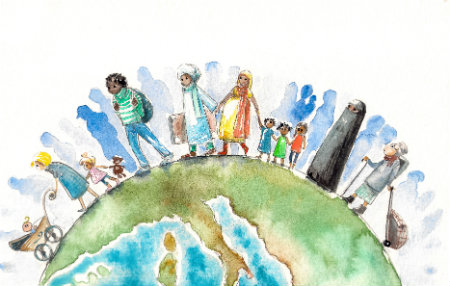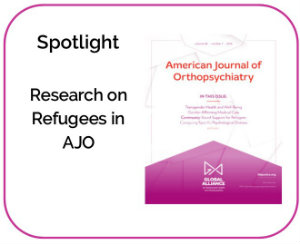RefugeesAccording to the 1951 Refugee Convention, a refugee is someone who has been forced to flee his or her country because of a well-founded fear of persecution due to race, religion, nationality, political opinion, or membership in a particular social group. The primary reasons refugees flee their countries are war and ethnic, tribal, and religious violence. An unprecedented 65.3 million people around the world have been forced from home. Included in that number are approximately 21.3 million refugees, over half of whom are under the age of 18. More than half of these refugees are from only three countries – Syria, Somalia, and Afghanistan. The protection of refugees has several facets, including safety from being returned to danger, access to fair and efficient asylum procedures, and measures to ensure that their basic human rights are respected while they secure a longer-term solution. Many refugees are resilient, but compared to their native counterparts, refugees are at higher risk for developing mental health problems as a result of previous trauma, such as war, violence, poverty, and/or the stress of migration. Moreover, once the refugees arrive at camps or their host countries, they often face adverse situations and ongoing stressors, which also affects their mental health. Recent work has shown that the daily hassles of living in refugee camps also contribute to mental health issues among refugees. Forced migration requires multiple adaptations in short periods of time. People – especially, but not only, children – become more vulnerable to abuse and neglect. Pre-existing social and mental health problems can be exacerbated. For example, if the reception of refugees and the provision of protection and assistance undermine human dignity, discourage mutual support, and/or create dependency, mental health problems may be induced or aggravated. An acute sense of urgency among people on the move may prompt them to take extreme medical and psychosocial risks, and their fast-paced mobility through several countries leaves little time for health care. There is no single model or manner for providing mental health and psychosocial support to refugees, but the Mental Health Psychosocial Support Network provides 12 good practice principles that have been agreed upon by organizations working in this field to guide the response and to prevent inadvertently doing harm. These principals include treating all people with dignity and respect; responding to people in distress in a humane and supportive way; prioritizing protection and psychosocial support for children, particularly children who are separated, unaccompanied, and with special needs; and strengthening family support. Research on Refugees
|


